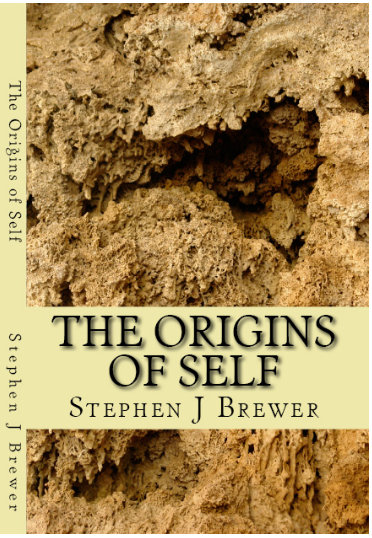Process philosophy can help us understand the evolution of life and self consciousness
“I will show you fear in a handful of dust” T. S. Eliot: The Wasteland
How can dust and water become a conscious living being capable of such emotions? Although Darwin's Theory of Evolution is believed to fully explain how dust and water are transformed into life, it is unable to explain the reality of our conscious mind, our intensity of being in a flood of emotions. The 'Origins of Self' presents Alfred North Whitehead's solution to what has been described as the 'HARD' problem.
Whitehead is one of the major figures in Western 20th Century Mathematics and Philosophy. His metaphysics 'Process and Reality'
- does not contradict but supplements the physical world described by science
- bases animal awareness on the processing of tiny experiences derived from molecular level events
- outlines the processes by which trillions of these tiny experiences are combined and compared to make us fully self-conscious
- allows us to fully explain how inanimate chemicals could evolve into life, and life into self-conscious human beings, without the need for a series of highly unlikely events
- places our evolution and our conscious experiences of the world into the cosmic process of creation
- powerfully argues that for us to have a conscious revelation of this creation's beauty and power, there must be a divine creator who initiates, participates and guides the unfolding of this creation (re: God Postulate )
Whitehead's 'Process and Reality' is of immense relevance to those life-scientists attempting to understand the origins and evolution of consciousness. At present, our understanding of this process is dominated by a purely physical interpretation. Thus we have scientists insisting we are robots with no free will and consciousness being an illusion produced by this machine. Whitehead puts the humanity back into the machine by insisting that all our feelings and emotions have their origins in real physical experiences. The animal body then organizes and processes trillions of these events into powerful emotions to be released as actions on the world. Our emotions are complex patterns of energy inputs from the environment that are channeled to allow us to satisfy our own desire to live:
'I now state the thesis that the explanation of this active attack on the environment is a three-fold urge: (i) to live, (ii) to live well, (iii) to live better. In fact, the art of life is first to be alive, secondly to be alive in a satisfactory way, and thirdly to acquire an increase in satisfaction.' (ref)
The problem is that his work is notoriously difficult for the non-specialist to understand. Scientists are not aware of this work, and neither are the public who instead are sold the atheistic concept that their lives have no value and all actions are pointless. These concepts, popularized by the geneticists Richard Dawkins and the philosopher Daniel Dennett are the natural outcome of this physically distorted view of life. As a life-scientist myself, my problem is how to make it accessible to scientists and the public. I therefore focused my efforts on the evolutionary aspect of his work. To do this I also need to bring everyone up to speed on how simple chemical processes evolved into the highly complex life forms we see today. To achieve these goals, The Origins of Self presents a scientific and philosophical debate between three life scientists about the failure of evolutionary theory to convincingly explain the development of our self-consciousness. In this way, Whitehead's concepts emerge naturally from our common sense experience and scientific understanding of the world.
Dr Steve Brewer, Author
Download a free pdf version of *The Origins of Self
You can also order a printed copy or Kindle version of "Origins of Self" from Amazon.com or Amazon.co.uk
*Note: This free open access version of "The Origins of Self" is licensed under a Creative Commons Attribution 4.0 International License.
This video embedded by permission of its author, Peter Sjöostedt provides an excellent introduction to the Process Philosophy of A.N. Whitehead
